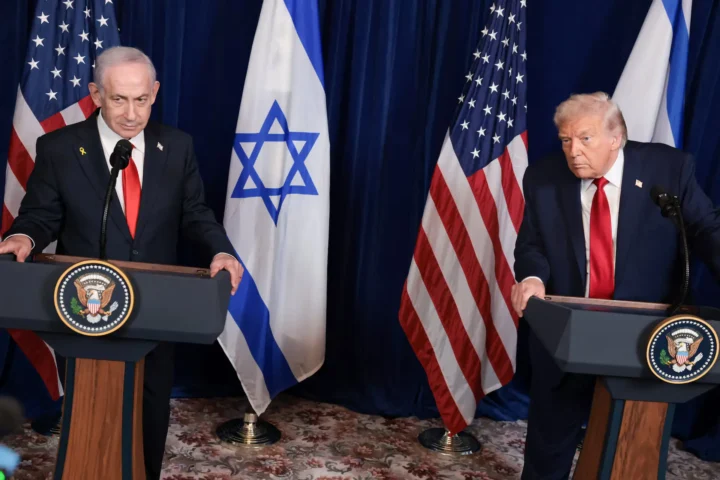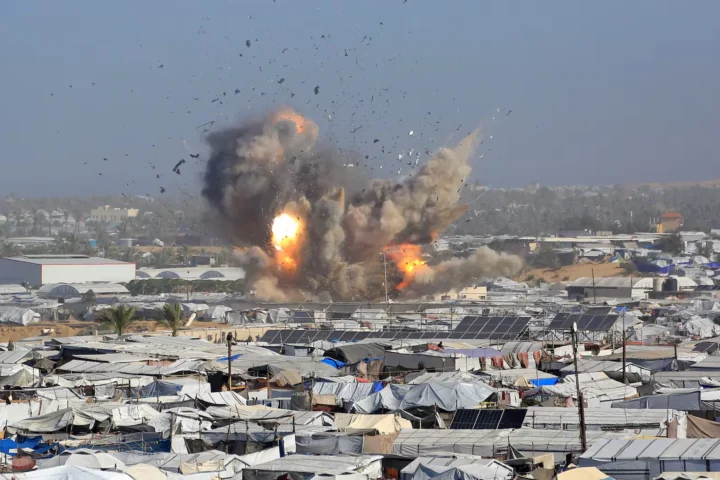The death of Yahya Sinwar, a principal architect of Hamas’s deadly October 7, 2023, assault on Israel, marks a pivotal moment in the ongoing conflict that has gripped the Middle East. As Israeli forces confirmed Sinwar’s elimination this past Wednesday, the ramifications of his demise ripple far beyond the immediate military victory, signaling potential shifts in Hamas’s internal dynamics and the broader trajectory of the war.
A year ago on the holiday of Sukkot, Yahya Sinwar orchestrated the horrific October 7th Massacre in which more than 1,200 Israeli men, women and children were butchered.
— Israel ישראל (@Israel) October 17, 2024
𝐓𝐨𝐝𝐚𝐲, 𝐨𝐧𝐞 𝐲𝐞𝐚𝐫 𝐥𝐚𝐭𝐞𝐫, 𝐡𝐞 𝐰𝐚𝐬 𝐞𝐥𝐢𝐦𝐢𝐧𝐚𝐭𝐞𝐝 𝐛𝐲 𝐈𝐬𝐫𝐚𝐞𝐥𝐢 𝐟𝐨𝐫𝐜𝐞𝐬.… pic.twitter.com/lCvdkwjkGC
Sinwar was not merely a figurehead; he was the embodiment of Hamas’s strategic and ideological vigor. Since assuming leadership within Gaza in 2017, he wielded immense influence over both the political and military wings of the organization. His ability to navigate the treacherous waters of militant leadership, coupled with his ruthless efficiency, made him a formidable adversary. Experts like Ghaith al-Omari of the Washington Institute for Near East Policy highlight Sinwar’s unique blend of political acumen and military prowess, suggesting that his absence will leave a significant void that may be difficult to fill.
The strategic removal of Sinwar by Israeli forces is a testament to the relentless pursuit of what Israel’s Ministry of Foreign Affairs heralds as “justice.” This sentiment, echoed across Israeli social media platforms, underscores a broader narrative of retribution and resilience. However, the cessation of Sinwar’s influence does not automatically translate to peace. On the contrary, it may catalyze a period of uncertainty and potential instability within Hamas.
Succession within militant organizations is notoriously fraught with challenges. Sinwar’s probable successor, whether it be his younger brother Mohammed Sinwar or seasoned political figures like Khalil al-Hayya or Khaled Mashal, will play a crucial role in determining the future course of Hamas. Mohammed Sinwar, while sharing his brother’s ruthlessness, lacks the same level of influence and may struggle to unify the beleaguered military wing, which has been significantly weakened during the current conflict. Conversely, figures like Khaled Mashal, who have spent years in exile and might be more amenable to external pressures, could open new avenues for negotiation, though their influence within Gaza’s militant factions remains uncertain.
The internal dynamics of Hamas are further complicated by its relationship with Iran, its primary backer. A new leader like Mashal, who has historically sought to pivot Hamas towards a more Arab-aligned stance, could strain ties with Tehran, potentially altering the strategic landscape. This delicate balance of power underscores the precarious nature of Hamas’s alliances and the broader geopolitical implications of Sinwar’s death.
For Israel, the elimination of Sinwar is a double-edged sword. While it represents a significant tactical victory, it also ushers in a leadership vacuum that could provoke unpredictable responses. The specter of retaliation looms large, with the potential for increased rocket attacks or retaliatory kidnappings of hostages. Indeed, the safety of the nearly 100 hostages remains a pressing concern, with Israeli officials estimating that around a third may already have perished.
The broader humanitarian context cannot be ignored. Within Gaza, Sinwar was widely despised for his harsh crackdown on dissent and his role in exacerbating the region’s suffering. His removal might be welcomed by many Gazans who view his tenure as a period of intensified hardship and repression. However, the absence of strong leadership could also lead to greater fragmentation and violence, further entrenching the cycle of suffering that has plagued the region for decades.
Internationally, voices like U.S. Vice President Kamala Harris have called for an end to the war, advocating for a focus on the “day after” to rebuild and reconcile. Yet, Israeli Prime Minister Benjamin Netanyahu’s recent vows to press on until hostages are returned suggest that diplomatic resolutions remain elusive. The path forward is fraught with complexity, as the interplay of leadership changes within Hamas, the resilience of Israeli military strategy, and the indomitable will of both peoples continue to shape a conflict with no easy solutions.
As the dust settles on this latest chapter, the world watches closely, aware that the death of Yahya Sinwar may be a turning point—one that could either pave the way for a fragile peace or plunge the region into deeper turmoil. The coming weeks will reveal whether this significant blow to Hamas heralds the beginning of the end or merely a new phase in an enduring struggle.











